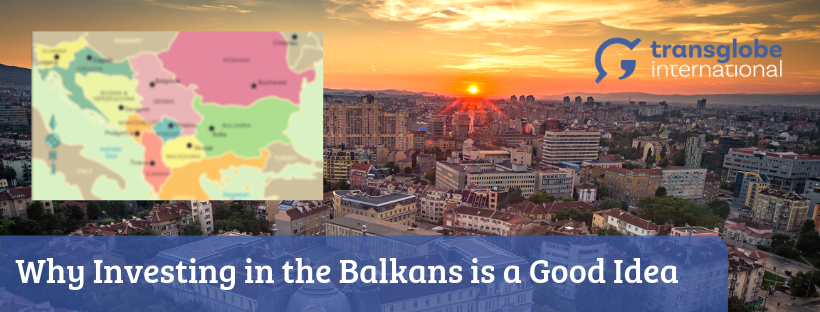Why Investing in the Balkans is a Good Idea
Let’s take a look at the Balkans – a mysterious place in South-Eastern Europe situated on the crossroads between Europe and Asia. We’ll explore how the Balkan countries fit in the global investment picture and their impact on the business in the region.
Current geopolitical situation
There are eleven countries on the Balkan Peninsula – Albania, Bosnia and Herzegovina, Bulgaria, Croatia, Greece, Kosovo, North Macedonia, Montenegro, Romania, Serbia and Slovenia. To be geographically fair, the European part of Turkey is also on the peninsula. 5 countries – Bulgaria, Croatia, Greece, Slovenia and Romania – are already in the EU, while the remaining 6 (excluding Turkey) are candidate members which should join the Union within the next 7-8 years.
Balkan similarities overview
The geographic, political and economic factors of the region mean that there are many common features of the Balkan countries that are favorable for investments compared to the rest of Europe. For example – strategic location between the northern and southern European markets, developments in connectivity which is a focus for the EU at the moment (e.g. the new Air Albania), taxes, investment incentives, education, labor cost. It’s worth mentioning that the standard corporate tax in the Balkans is about 10-15% (0% for some businesses), while the same tax in the rest of Europe is from 20 to 33%. Transport is also great and continuously improving, and despite the lower standards of living, all Balkan countries are currently growing their economies and showing great potential for investment.
Economic stability and growth
Economy in the region has been stable overall with five EU members and six candidates. Also, all of the candidate countries have signed a Stabilization and Association agreement with the EU (SAA) which allows them free trade with EU, EFTA and CEFTA countries, Turkey and Ukraine, and provides them with financial or technical assistance before joining the EU. Furthermore, Bulgaria’s lev and Bosnia and Herzegovina’s convertible mark have been quite stable since the acceptance of the currency board with the German mark until 2002, and afterwards – with the Euro.
Trade, taxes and costs
Existing trade and tax policies in the region are a big advantage for investing in the Balkan countries which can help investors make the decision and expand their businesses. Here are the main ones:
- Low corporate tax – from 0% for some businesses to about 15%, this is a great incentive for new investments.
- Free economic zones – helping new business growth in Albania, Bulgaria, Northern Macedonia, Serbia and Turkey.
- Free trade agreements – both EU member countries and candidate countries enjoy free trade with EU, EFTA and CEFTA countries, Turkey and Ukraine.
- Low costs – all Balkan countries offer relatively cheap rent options and affordable labor costs, making new investments quite attractive.
Demographics
Without any doubt, the best asset of the Balkans is people. They are young, well-educated and hard-working, and many of them speak at least two foreign languages. Past economic hardships in the region have led to a very resilient, flexible and skilled labor force in all Balkan countries, making it easier for investors to quickly open new offices and expand their businesses.
The Balkans are indeed a fascinating place with a rich history and an even richer culture. So when it comes to doing business here, it’s important to choose the right partner. We at TransGlobe International can help you to start your business here – ask us how!

